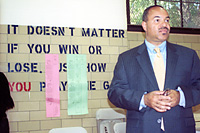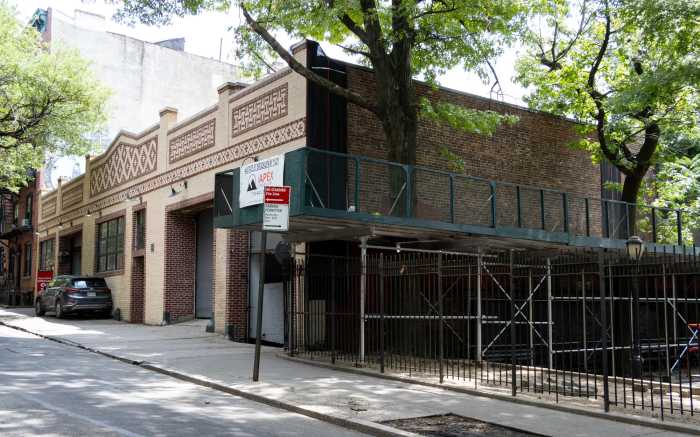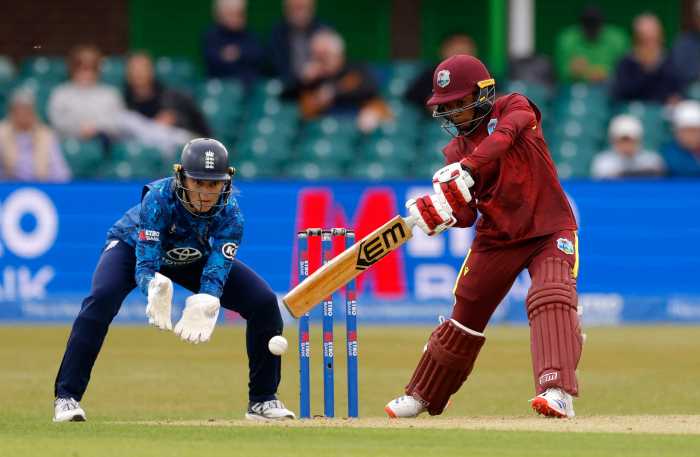City Councilwoman Yvette Clarke trounced Councilman David Yassky and two other rivals on Tuesday to win a promotion to Congress in an often-bitter campaign that exposed rifts between Brooklyn’s African-American, Caribbean-American and white communities.
It was a race that the white Yassky had hoped to win by facing three black candidates who would supposedly split the “black vote.” Fear of a Yassky victory in the majority-black 11th District caused many black leaders to call for two black candidates to drop out so their communities could be united against Yassky.
But a unified front was ultimately not necessary. Clarke got 31.2 percent of the vote to Yassky’s 26.2 percent (14,946 to 12,570). State Sen. Carl Andrews (D–Crown Heights) got 22.9 percent (10,983) and Chris Owens, the congressman’s son, got 19 percent (9,403).
How did she do it? Why did Yassky lose? When you break it down, it all makes sense:
• Political endorsements mean nothing. Union endorsements mean a lot.
All of the candidates touted big-name endorsers — Andrews had gubernatorial frontrunner Eliot Spitzer and former mayor David Dinkins, for example — but Clarke had the backing of Service Employees International Union locals 1199 and 32BJ, two unions that gave her hundreds of ground troops in the two weeks before the election.
The unions — which are said to have more than 32,000 members within the 11th CD — strongly urged a vote for Clarke and ran a massive “get-out-the-vote” effort on primary day.
“Many of their members are nurses or hospital workers who can really relate to Yvette,” said one insider. “The unions turned out the vote for her. She won some election districts in East Flatbush almost unanimously.”
• What happened to the “black vote”?
To win, Owens would have needed to energize his father’s base — but the problem is, there wasn’t any. African-American power in the 11th District is slowly being supplanted by Caribbean-American voters.
“I was planning to create a base in Brownsville for Chris, but the movement wasn’t as strong as it once was,” Major Owens admitted on primary night.
While the 11th District was created for African-Americans, its Caribbean-American population is now dominant.
“Now the racial ‘divide’ in the district is African-American, Caribbean-Americans and whites,” said a Democratic strategist. “And Caribbeans run the show now.”
• Is there such a thing as the “white vote”?
If Yassky was going to win, he needed to rack up votes in the white portion of the sprawling district. But two things got in the way of that plan: Chris Owens and white guilt.
Early on, Owens staked out a position to the left of Yassky, making him the clear alternative for liberals who didn’t trust Yassky’s sometimes cozy relationship to developers.
Moreover, many whites said they felt guilty voting for Yassky in the 11th District, which was created under the Voting Rights Act to empower black voters.
So while Clarke could openly woo her Caribbean-American base, Yassky had no “base” to fall back on.
Owens, whose father famously called Yassky a “colonizer,” made that clear in a concession speech that reveled in Yassky’s loss.
“For all you press in the room, the spin is simple,” he said. “I took the white votes from Yassky that would’ve given him his win.”
• White men can’t campaign
For some observers, Yassky’s fate was sealed the first time he opened his mouth in a black church.
During a particularly tough stretch, when black leaders (including Clarke) were calling him a “carpetbagger” who was trying to “steal” the 11th seat, Yassky went to an East New York church. After listening to the heightened, emotional rhetoric, he got up and gave a speech aimed more at the head than the heart.
There was polite applause.
After Yassky left the room, Councilman Charles Barron got up and decried his colleague as “an interloper who has no business running in our district.” The crowd went wild.
“It was a constant issue for him,” said one Democratic leader. “The working-class segments of the district have a different language and sensibilities. They connect differently. David didn’t have that thing they wanted.”
That sentiment crystallized last week when a resident of a housing project hurled a donut in Yassky’s direction during a campaign stop there.
Worse, Yassky didn’t always connect with white voters.
Late in the campaign, Yassky handed out copies of his New York Times endorsement to parents in a playground in mostly white Park Slope. He chatted about his vision and received a polite reception, but when he walked away, one of the mothers turned to another and said, “Man, if he can’t even connect with white people, how is he going to get any votes in the black part of the district?”
Of course, it didn’t hurt Clarke to be the only woman in the race
• Few voted on Atlantic Yards — and those who did chose Owens.
Some observers tried to spin the 11th District race into a referendum over Bruce Ratner’s Atlantic Yards mega-development — which Clarke strongly supports, Owens vehemently opposes, and Yassky, sort of, kind of does both.
Daniel Goldstein, a spokesman for Develop Don’t Destroy Brooklyn, said that Yassky should have been clearer about his opposition to Atlantic Yards early on.
“Maybe he could have gotten some of those Owens votes back,” Goldstein said.


























